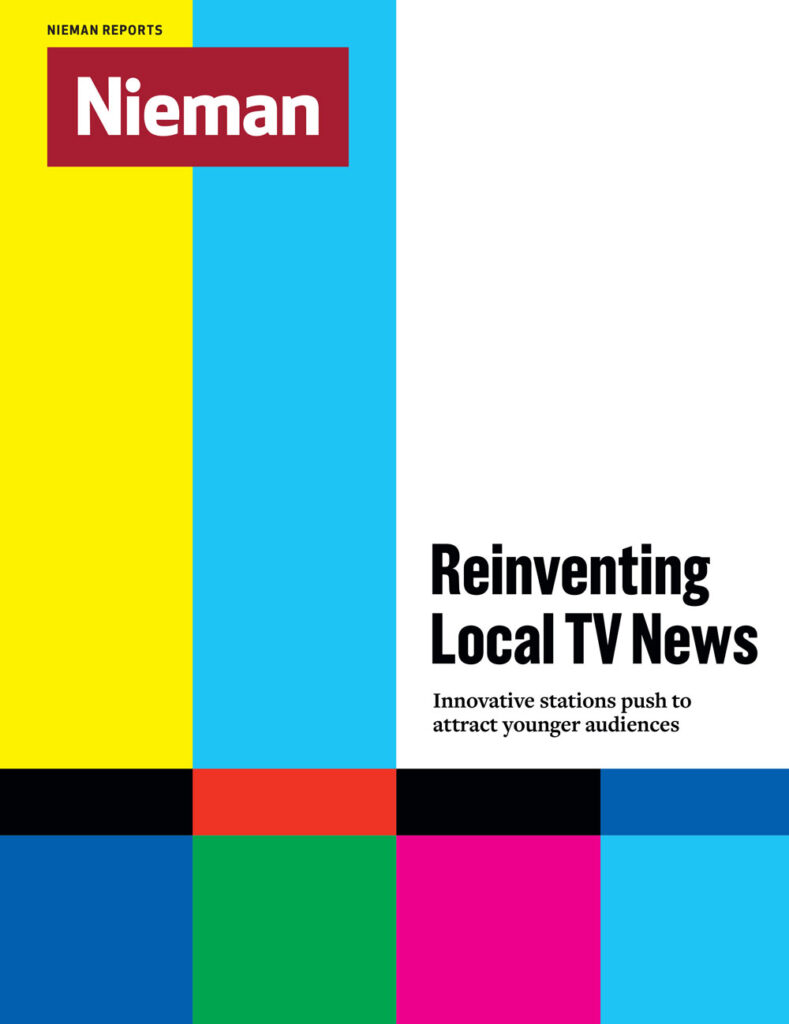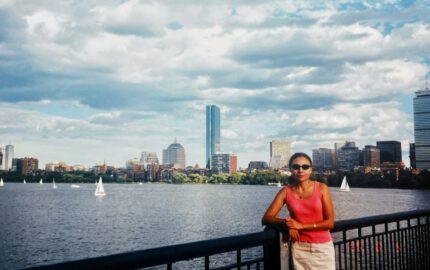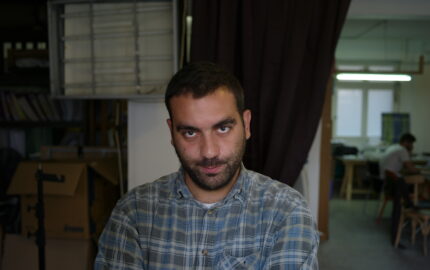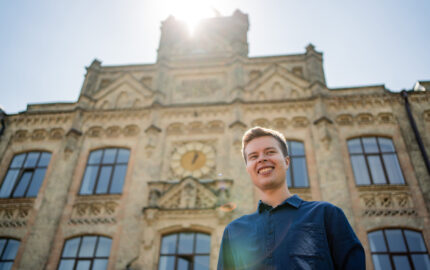The stakes were low. I started on the features desk. Still, I’ll never forget what happened the first time I turned in a story. When that paper came back, all I could see was the red. Every line was marked up or scribbled over. Most of the markings didn’t even make sense to me. The red ink was splattered on the page, washing over every word of my precious prose.
I don’t remember the topic of the story or the specific edits. What I do remember is the feeling, how my idea of writing and of storytelling shifted. As I had the red markings explained to me, I saw how imprecise and unorganized my story had been. I realized that journalism was going to require more of me.
This was more than an edit. It was a moment of transformation. It was baptism.
It took me a while to think of it that way. I still thought I was just there trying to do something with my writing. But I was also learning journalism’s core beliefs. I adopted them on faith.
Journalism is a secular profession. Most of the journalists I work with are not people of faith. Many are ardent atheists. It took me years to realize the connection between journalism and religious practice. But I’m not the first to see it.
Jay Rosen of NYU laid out his case in an essay published online in 2004. In that essay, Rosen pointed to the journalist’s creed, written by Walter William, the first dean of the Missouri School of Journalism:
I believe in the profession of journalism.
I believe that the public journal is a public trust; that all connected with it are, to the full measure of their responsibility, trustees for the public; that acceptance of a lesser service than the public service is betrayal of this trust.
And so on.
This creed itself echoes the Apostles’ Creed I grew up reciting every Sunday at Catholic Mass.
When I stopped going to church in my 20s, I thought I’d simply lost my faith.
Years later I realized, I’d lost my faith in the church at nearly the same time I found it in journalism. I wasn’t lost, I was converted.
The comparison of journalism and religion doesn’t map out perfectly. There are obvious, major differences. But I realize more and more how much the practice of each is the same.
As journalists, we spend much of our time in study and reflection. Our faith requires us to break bread, and drink in communion with our sources and fellow journalists. And most of all, we devote ourselves to prayer.
The catechism of the Catholic Church explains the role of prayer with this quote from St. John of Damascus: “Prayer is the raising of one's mind and heart to God or the requesting of good things from God.”
Rosen, in his essay “Journalism Itself is a Religion,” quotes his fellow journalism professor James W. Carey, who says “The god term in journalism … is the public.”
We can mash together the two quotes and say this about prayer in journalism: Prayer is the raising of one’s mind and heart to the public or the requesting of good things from the public.
How is this not what we do with every story we write?
None of us are in the business of journalism simply to transcribe words and facts. That is part of what we do, but it is not our purpose. We do what we do so that it will have an impact with our god—the public. Every story is a request, often deeply heartfelt, for change.
These prayers of ours often go unanswered. Every journalist can tell you of the stories they labored over, and lifted up to the public, only to find the public didn’t notice or didn’t care. Yet we go on praying, filing stories day after day, week after week, persistent in the faith that these prayers, will lead to “good things” for our society.
I realize not everyone will identify with the analogy here. Most journalists I know are solidly secular. Many grew up with no experience of organized religion. But for me, the comparison is as obvious as it is useful. It helps me understand why I stick to this profession, even in the face of so many problems. Sometimes my doubts about journalism are as powerful as the ones I felt in the church. Like most journalists, I’ve thought of leaving more than once.
I stay not because I believe in the institutions of journalism, or because I believe in its impact. What I believe in is the practice of prayer. I believe in raising my mind and heart. I believe in requesting good things from our audience, even when no good things come. I believe every story is a prayer. I believe, even on my worst days, in the profession of journalism to tell those stories.
Amen.



